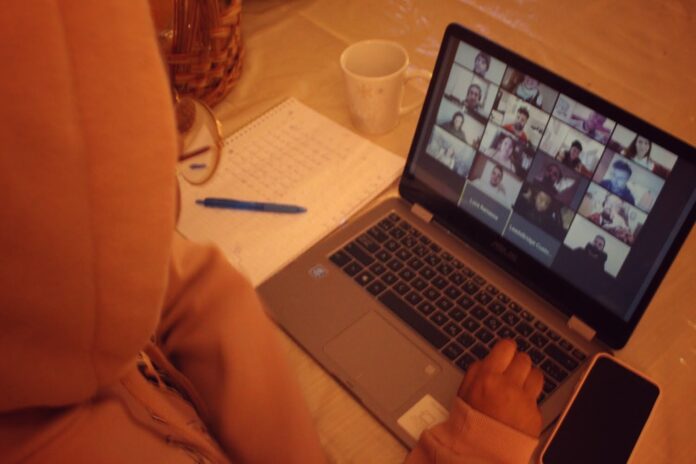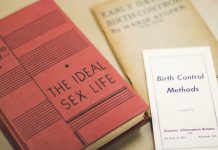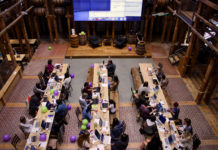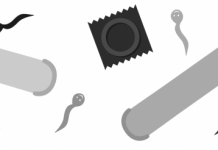This year’s WUSA Imprint Executive Debate looked different than it usually does—it was held virtually, with one candidate running for each position, and thereby taking on more of a question and answer dialogue. Team duckduck is running for the four executive positions for the Spring 2021 term.
Matthew Nicholas Schwarze is running for VP Operations and Finance (VPOF), and he is studying Mathematics and Business Administration in the UW/WLU double degree program.
Schwarze explained he is running for the VPOF position because it is in the next level of involvement for him in WUSA. He said one of the largest parts of his platform is making sure students are supported.
“The way I see it, is making sure our organization is in the position to be able to support our fantastic student advocates, our student volunteers, our student workers in doing the best things around them. My job as VPOF really is to empower others to do the really great work that our campus needs,” Schwarze said.
Schwarze plans to support students with a 24-hour email policy, where he intends to respond to all emails he receives from students within 24 hours.
“If you email me with any problem, it could be related to health care, it could be related to anything, you’re going to get a response from me within a day,” Schwarze said.
Schwarze said that a focus of his position would be to ensure value for student money rather than committing to spending a specific amount.
“I’m going to make sure that every decision we’re making from a vantage perspective is about making sure that the dollars that students spend on our fee, gets something for them,” Schwarze said.
Once the university transitions back into in-person operations, WUSA will re-start its in-person initiatives, such as orientation, among other events. Schwarze said this allows WUSA to start from the ground-up and allows the organization to ask essential questions.
“How can we actually do this more sustainably? How can we create less incidental waste? How can we make sure this involves less transportation with few carbon emissions?
There are going to be so many different chances at which we get to consider this. So, the big answer is, we’re going to be considering this at every turn. Every decision to be made in reopening our campus is going to consider ‘how can we do better than we’ve ever done before?'” Schwarze said, “If WUSA isn’t there for students, then no one is.”
Next, questions were directed to Catherine Dong, candidate for VP Student Life (VPSL). Dong is studying Mathematics.
Dong explained that driving sustainability and equity forward are some of her biggest goals for the position, especially since she believes there is not enough attention being drawn to these issues.
“There’s a lot that WUSA can be doing,” Dong said. “We have the time and resources and possibility to make an impact here.”
“My three biggest goals that I generally outline are integrating sustainability and equity throughout all of WUSA. So, that means reinvesting in our sustainability project, taking a proper look at investigating WUSA’s carbon footprint to identify where we can improve and then implementing those improvements and committing to the recommendations of our current equity review.”
“As well as consulting and actively communicating with marginalized groups on campus to make sure we are implementing those changes that need to happen to make sure it’s a safe and equitable place for everybody. People shouldn’t be getting less out of their time here just because of their race or their gender or their sexual orientation, that’s not acceptable, so we have to be addressing that. I want to make sure we’re really investing in the support and guidance and resources for student groups, clubs, and services and societies, as well as informal groups, even though they are not under WUSA. That’s really the heart of how WUSA reaches its students.”
With the switch to online education, orientation events have been delivered online.
“I want to make sure that students who have spent a lot of time online aren’t missing out. I want to make sure once they get back on campus, they aren’t held back from opportunities for leadership just because they feel like they have to catch back up on being on campus. I want to make sure they can jump right back into what it’s like to be a student on campus,” Dong said.
“WUSA has begun the process of looking into a fee review, so I want to make sure that we’re keeping all perspectives on the table, to make sure that nothing’s tossed to the side and that everything is supported the way that it needs to be,” Dong said.
“I want to make sure that the VPSL portfolio is a place where students can feel heard and feel like they are being supported when they are pushing for the change that we need.”
When asked by the moderator, ‘what will be done to support and advocate for Black students, Indigenous students and other students of colour?’
“It is going to be: not discounting voices that have personal experiences in their own lives. It is going to be: making sure that we are actively including those voices in conversations where they will be affected,” Dong responded.
“I’m not 100 per cent sure what those interactions look like right now, because I haven’t been part of them, but I know that I and my team will be committing to taking all of those concerns, complaints, questions, everything, suggestions, seriously. Really looking into how we can implement strategies and solutions to problems as they’re identified. We’ll be doing our part as best as we can in identifying and proactively looking for those gaps ourselves but unfortunately sometimes, it’s hard to see them when you don’t trip into them yourself. So, we’re going to be working hard to make sure that we’re hearing other people’s identification of them so that we can implement solutions together,” Dong said.
Dong was then questioned about the misconducts that took place at the UW RAISE’S Climate Justice is Racial Justice event.
“That type of stuff should not be happening. We can do our best to prevent it from happening but in light of when it does happen, there should be strict enforcement, ideally consequences to show that it’s not acceptable behaviour. If misconduct is happening, people should be removed from events, asked to leave, and possibly in the future, not permitted to attend again because they pose a danger to students, if not their physical well-being, their mental well-being and that matters,” Dong replied.
“Combatting racism and all other forms of discrimination on campus means that we shouldn’t be discounting anybody, any of their stories just because we haven’t experienced them ourselves. It’s going to be a lot of working with students on campus to make sure that what they are experiencing is accounted for when we’re making decisions about how to better support them.”
The moderator asked whether Dong would deem RAISE essential and commit to protecting RAISE coordinators and volunteers from the white supremacist violence targeted against them.
“I hope we can all agree that the work that RAISE does is essential to all students. This term I have specifically made an effort to volunteer with RAISE to make sure that I can really understand from the inside what kind of support they need so that I am not coming at it from a one-sided perspective once I’m VPSL. I want to make sure that RAISE is protected because it’s a desperately needed service especially in light of how the university itself is failing to provide students with that kind of support. If the university isn’t going to do it, we have to. So, there’s no question, RAISE is essential,” Dong responded.
When asked about the facilitation of orientation for the upcoming year, Dong said she would be connecting with groups that have conducted both on-campus and online events to create meaningful experiences. When it comes to integrating back onto campus, as for the upcoming academic year, it is unclear whether orientation will be delivered online or on-campus due to the ongoing COVID-19 pandemic.
Next, questions were directed to the VP Education candidate, Stephanie Ye-Mawe. Mawe is studying Knowledge Integration.
“There are two goals that I see as most important, one of them is remaining responsive to the current pandemic situation, it’s definitely changed how education is facilitated, its changed co-op, its changed student housing situations,” Mawe said. She acknowledges that students may be in difficult situations regarding where they are living and having the adequate means of accessing their classes.
“One of my biggest goals, and bringing my lived experiences to the forefront, is making sure that we develop a strategic plan for that [student accessibility commission] moving forward, making sure that we understand the various barriers that students of all different sorts of disabilities experience on campus and develop strategies to address that. I think it’s time that WUSA begins taking responsibility for that, in the same way we’ve taken responsibility for racialized students and LGBTQ+ students,” she said.
Mawe also acknowledged that BIPOC students encounter difficulties on campus, and her plans to address these issues involves engaging in consultation, collecting those experiences but also being respectful through the fact that these students have been saying these things for a while, and it’s just getting exhausting for them and I don’t think that it’s necessarily fair that they have to bear that burden but simultaneously I think it’s the best way to move forward and create a better university environment.”
Mawe is hoping the government will reintroduce the double federal grants and pause interest payments like in the fall. She said the ten per cent tuition cut that the Ford government implemented led universities to cut the number of grants and therefore reduce the amount of help for students who need it most.
CECA (Centre for Career Action) is looking to create relationships with firms to make more co-op jobs. She also said the Canada Works program introduced by the federal government has relevant jobs and Mawe wants to take a better look into the program, how it works, and push for further investment into the program.
The last set of questions was for the Presidential candidate, Benjamin Phillip Easton.
Easton says some of his biggest goals for WUSA include governance reform and advocacy to the university to establish an independent academic policy office.
“Currently, WUSA runs the Centre for Academic Policy Support (CAPS) under the VP Education portfolio, where we support students with academic policy grievances and so on,” Easton said.
He said that it has been good that WUSA has been able to support students through CAPS, but also acknowledges “that shouldn’t be our responsibility. The university should be stepping up and helping students with these academic policy issues, particularly in light of their lack of willingness to help students with compassionate grading and credit, no credit options that really only leaves us as students with the ability to grieve but that’s a lot of work for a student to do,” he said that working to have an independent academic policy office is his top advocacy priority.
“My third priority is to the university board of governors from divestment from fossil fuels. My teammates have talked about sustainability within WUSA, what we can control but sustainability is the issue of our time and its demands action,” Easton said.
“Groups like Fossil Free UW do a lot of great organizing outside the system, what a WUSA president can do is complement that work, inside of these decision making bodies. Being a voice at the table and saying ‘this is what students demand’, these are urgent issues and how I can contribute to the work that other groups are doing as well,” Easton added.
Easton says governance reform is needed to address any inefficiencies in terms of the organization’s operating efficiency. One way he is planning on doing this is by establishing committee mandates for all of the student council committees.
“Is it necessary that this committee exists? Is this work being duplicated elsewhere? Are we just increasing cheques for the sake of having a process when it may not be beneficial for the functioning of the organization as a whole? Governance is my response to efficiency in the organization,” Easton said.
WUSA is a large organization and requires all sections to agree for change to happen. Easton is hoping that the breadth of the experience across the team will help address the issues.
Easton acknowledges that every position in WUSA requires a lot of work and sees burnout as a potential problem.
When asked about racism on campus, Easton responded: “white supremacy is alive and well in our communities and on our campus, and supporting groups like RAISE is essential to creating safe places for BIPOC students and allowing students to organize and talk about issues like environmental racism and racism on campus. It’s vital in helping to combat that. One thing we can do internally to WUSA, is commit to implementing the recommendations of the equity audit that is going on right now, which is something that we can control, so that’s something that I look forward to doing. I’m aware of the irony of me, as a white person talking about how I’m going to beat racism, so I guess listening is how I can help to address [racism].”
More information about the official campaign can be found on the team’s website duckduck.ca.
Voting begins on Tuesday, Feb.2 and ends on Thursday, Feb. 4. Votes can be cast on vote.wusa.ca using your uwaterloo.ca email address to login.






























